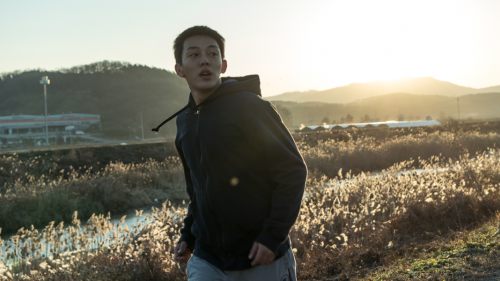TIFF 2019 Review: Armando Iannucci Takes On Dickens With THE PERSONAL HISTORY OF DAVID COPPERFIELD
If you didn’t already know Armando Iannucci was behind The Personal History of David Copperfield, you’d be forgiven for thinking someone else had made it. The film represents a significant change for the creator of Veep and In the Loop. It is a much kinder film than we’re used to seeing from him, with very little of the sharp, searing satire of his TV work, or the overhanging dread and frequent cruelty of his last film, The Death of Stalin.
The Personal History of David Copperfield is a work of generous spirit and gentle, whimsical humor. But even though it’s a different kind of subject matter, and a different atmosphere, from Iannucci’s other work, it still retains some of his hallmarks, namely social commentary and a particular love for distinctive characters. Iannucci, his screenwriter and long-time collaborator Simon Blackwell, and the film’s impressive ensemble come together to create a Charles Dickens adaptation that does its best to stand out in both content and context.
That context starts with the casting. In this adaptation, David is played by Dev Patel, and he’s joined by a number of other actors of color in significant roles, including Benedict Wong and Rosalind Eleazar. What’s even more interesting is that there’s no internal logic as to how the actors of color are cast. For instance, David’s mother (Morfydd Clark) is white, as is his paternal aunt Betsey (Tilda Swinton). David’s school friend Steerforth (Aneurin Barnard) is white, and his mother (Nikki Amuka-Bird) is black. Wong and Eleazar play father and daughter. It’s about as close to colorblind casting as it’s humanly possible to get.
Importantly, race itself is never actually mentioned in the story. It suggests an underlying point that’s never explicitly stated: that David Copperfield, a classic novel typically only adapted with white actors in mind, can (and should) be everyone’s story. It’s a telling of great British literature that more closely reflects a sense of what Britain, and other culturally diverse countries, actually looks like.
With that addressed, Iannucci can fully focus on the content: the novel’s incisive social commentary, hopeful outlook and delightful wit. The bildungsroman follows David’s life from birth, through childhood and early adulthood as he displays an aptitude for writing, and concluding with the successful publication of his autobiography. Along the way, David goes from riches to rags and back several times as he gains a cruel stepfather and aunt (Darren Boyd and Gwendoline Christie) who upend his previously happy childhood. David spends time working in a bootblack factory, eventually moves in with his estranged Aunt Betsey and her quirky cousin (Hugh Laurie), goes to school, gets a job, and later saves his family from financial ruin.
Iannucci and Blackwell’s screenplay does its best to give each member of the film’s sizeable cast room to shine. Swinton and Laurie are particularly good together as Aunt Betsey and her oddball cousin, Mr. Dick. Swinton’s knack for comic timing, and Laurie’s ability to bounce off it, create some of the film’s funniest moments. Peter Capaldi and Bronagh Gallagher are also great as charismatic debtors Mr. and Mrs. Micawber, who simultaneously charm and cheat their way through life, and appear to sprout new offspring in every scene. Ben Wishaw is perfectly cast as weaselly social climber Uriah Heep, skulking around the background of shots and taking particular pleasure in puffing up his own importance as his fortunes rise.
Patel, for his part, makes a great David, full of optimism, curiosity and a genuine interest in everyone he meets. Iannucci takes a lot of pleasure in exploring David’s growth as a writer, paying attention to the unique characteristics of others, and employing his vivid imagination to describe them in ways that are both unexpected and wholly accurate. He has great chemistry with Eleazar, who plays his eventual love interest, Agnes, with intelligence and low-key dry wit.
Stylistically, however, The Personal History of David Copperfield doesn’t always feel that consistent, and sometimes employs storytelling devices that feel like unnecessary flourishes. The framework of the film, with David reading his story aloud to a theatrical audience, certainly works in the sense that it reflects Dickens’ own experiences as an author. However, it only appears as an introduction and epilogue, and particularly at the start of the film makes it feel a little tacked-on.
There’s also a feeling, particularly in the depiction of David’s childhood years, of being somewhat rushed. It’s notable that the last Copperfield adaptation was a BBC mini-series, which this movie may also have been a bit better suited to. Dickens’ novel certainly contains enough content to fill more than a couple of hours, and sometimes Iannucci’s film strains at the seams in trying to show everything it wants to.
Overall, however, The Personal History of David Copperfield is a charming adaptation, one that is reverently classic in style, but also refreshingly modern, determined to give audiences a new, relevant take on the material. If nothing else, its smart, diverse casting absolutely does great work in bringing the story into the present day, as does the razor-sharp script.



